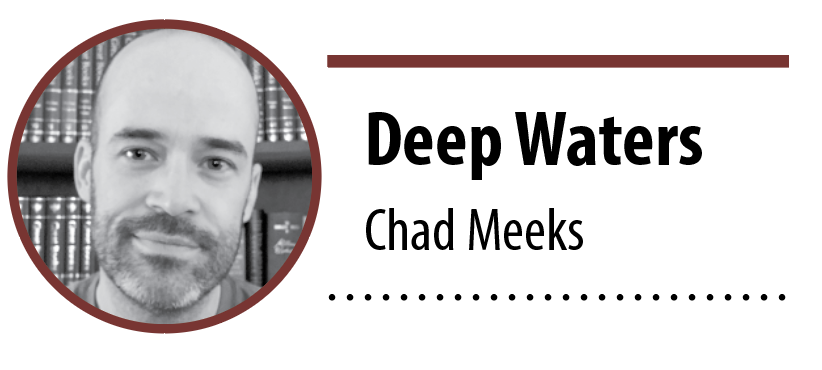To conclude our look at the reliability of Scripture, we will look at inerrancy. The standard definition of biblical inerrancy is that the Bible is inerrant in its original writings. That is, the original documents did not affirm anything factually wrong (within history, geography, etc.).

Inerrancy is very similar to infallibility – in fact, some claim they are the same – but usually understood to focus on particular nuances that many understandings of infallibility do not address. The normal way that inerrancy and infallibility are distinguished is that infallibility “paints with a broader brush.” In that, inerrancy focuses on even the minute details of numbers and historical places in Scripture, whereas infallibility usually refers to only doctrines and biblical ethics.
What are we to say about contemporary translations, or even the ancient Greek and Hebrew copies? Are they inerrant? Given the massive amount of ancient manuscripts, one can be fairly confident that contemporary translations are correct.
Furthermore, inerrantists are given no justified reason (by textual or scholarly evidence) to doubt that God not only inspired the creation of the Scriptures but that He preserved the transmission of the text through the ages.
The standard document on inerrancy is the Chicago Statement on Inerrancy. In regards to the transmission and translation, the statement’s writers say:
“The verdict of the science, however, is that the Hebrew and Greek text appear to be amazingly well preserved so that we are amply justified in affirming … a singular providence of God in this matter and in declaring that the authority of Scripture is in no way jeopardized by the fact that the copies we possess or not entirely error-free.”
What about translational inconsistencies? In other words, what about discrepancies in various manuscripts? Let’s focus on two and see how nominal they are. First, there is the longer ending of Mark (Mark 16:9-20). Many contemporary scholars (these are scholars that claim the Bible is inerrant) claim that Mark’s original writing ended at verse 8. Why? Many of our oldest and most reliable manuscripts of Mark do not include the longer ending (Mark 16:9-20). So what are we to do? Does this highlight why we cannot trust Scripture?
No! Given the abundance of manuscript evidence and the lack of any significant doctrinal statements in the possible alternate ending, if Mark did indeed end his writing at verse 8, nothing is lost to the believer. Keep in mind, this is a possible addition – if Mark wrote the longer ending, we have it for our edification today. If he didn’t, then nothing major is lost within Christian belief.
Many contemporary scholars (again, these are scholars that claim the Bible is inerrant) claim that John 8:1-11 is a late edition to John’s gospel; thus, not original to John. Why? First, the story is not found in many of our oldest and best manuscripts. Some manuscripts include the passage late in the Gospel of John and some manuscripts include it in other books. In some regards, it does seem to interrupt the flow of John’s narrative. In other words, it seems out-of-place. Thus, some claim it may have been a true story that was inserted by later scribes.
As with the longer ending of Mark, the Christian loses very little here. The same ideas and teachings on forgiveness can be found elsewhere in Scripture. The possible addition doesn’t give us any reason to doubt the transmission of the original text. If anything, given the number of manuscripts that we have – some with it and others not — should give Christians comfort in knowing that we have ample evidence for what we possess today.
Chad Meeks is associate pastor of youth and discipleship at Cedar Heights Baptist Church, North Little Rock.
© Copyright 2019 Arkansas Baptist Newsmagazine, Inc. Use of this article in print or through electronic means a violation of copyright. Request permission to reprint here.

